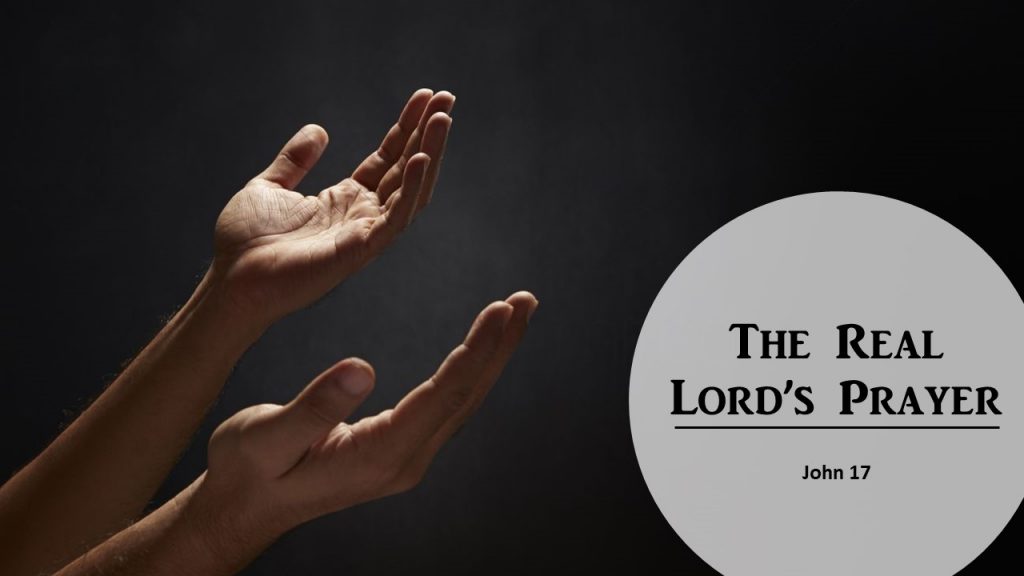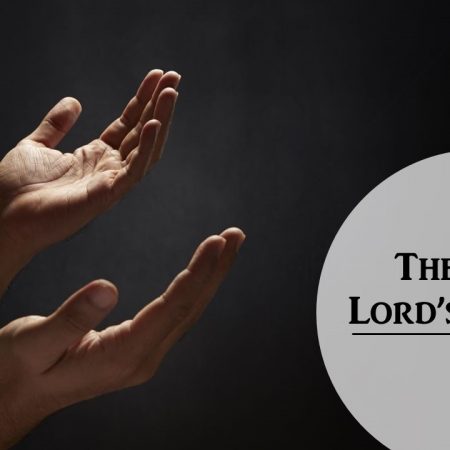
John 17:11 “Holy Father, keep them in your name, which you have given me, that they may be one, even as we are one”.
I have pointed out to you previously that there are actually just two very specific requests made by Jesus in this prayer – “keep them” and “sanctify them”.
As we saw last time, the prayer to “keep them” (v11) has three, what we might call, sub-sections:
- “keep them in your name” (v11)
- “keep them…that they may be one” (v11)
- “keep them from the evil one” (v15)
We looked at the first of those three last time and now we come to the second, and, in slightly different words, this request comes no less than four times in this chapter.
Please note:
- 17:11 – “…keep them…that they may be one, even as we are one”
- 17:21 – “…that they may all be one, just as you, Father, are in me, and I in you”
- 17:22 – “…that they may be one even as we are one”
- 17:23 – “…that they may become perfectly one”
The first of those four requests is specifically concerning the disciples who are with him on that historic night in Jerusalem, while the other three are part of the section of his prayer that begins in v20 where Jesus prays for all believers of all time, “those who will believe in [Jesus] through their word” (17:20)
Each of those requests has a slightly different nuance and setting so we will need to revisit this subject as we make progress through the rest of the prayer.
But as we focus on v11, I want you to notice four things.
First, the CONCERN of the prayer
The fact that, four times in this prayer, in different ways, Jesus prays for the unity of his followers ought to impress on us how important the subject is to him.
Indeed, I believe we would be consistent with Scripture if we said that God’s primary concerns for his people are two-fold – their holiness and their oneness, or to put it another way, their purity and their unity.
Second, the CONTENT of the prayer
It’s important to notice that Jesus does not pray that his people might become one, but that they might be one. In other words, he is not praying that the Father would make us united, but that he would keep us united.
All true believers are already, “one in Christ Jesus”. Some of you will recognise that as the motto of the Keswick Convention, but it is actually a quote from Scripture, namely Galatians 3:28.
It’s also interesting to note something that isn’t at first clear in the English. The form of the verb “be” in the original Greek is that his disciples might constantly be one.
So, what Jesus is praying for is that the oneness that we already have in Christ would be maintained.
Thirdly, the CONTEXT of the prayer
I want you to notice this because it will help us get a right understanding of exactly what Jesus is praying for. After all, as I never tire of saying, context determines meaning.
Notice how Jesus prefaces this prayer. One of the reasons he is praying for his disciples to be kept is that – v12 – Jesus, who has kept them while he was with them on earth, is now – v11 – returning to the Father, so he is “no longer in the world, but they are in the world”.
In other words, they will be subject to all the attacks of the enemy, “the god of this world” (2 Corinthians 4:4), all the weaknesses of the flesh and the ongoing guerilla warfare that their old sinful nature wages within them, as Paul so graphically describes in Romans 7.
Unity among the people of God is not natural but supernatural, and if the Father does not keep us united than we will very soon become divided and Satan will see to that.
Fourth, the COMPARISON of the prayer.
Jesus prays that his disciples will be one, “even as we [Father and Son] are one”. That’s a bold, a strong prayer, isn’t it? ‘Father’, says the Son, ‘I want the unity between my disciples to be like the unity, the oneness, that you and I enjoy and have done for all eternity, and constantly do even now while I am here on earth’.
Well, the question we need to ask is, in what way are the Father and the Son one? We need to understand that because that is what Jesus is praying for his first disciples and for us.
Now, of course, in considering this we are dipping our toes in an incomparably vast and deep ocean of truth, but for the purpose of this study let’s just look at one verse elsewhere in John that will help us, even in a small way.
In John 10:30, Jesus says, “I and the Father are one”. That’s very clear and straightforward. And he says that as part of a response to a request from Jews in Jerusalem who said to him, “If you are the Christ, tell us plainly” (10:24).
Jesus’ response is revealing and, to the Jews to whom he was speaking, utterly shocking. He says that the works that he has been doing among them have been done in the authority of, and by the name of, the Father (v25).
He couldn’t do what he has been doing, unless he was one with Father; one in purpose and power. But even more than that. When Jesus says, “I and the Father are one”, what he is actually saying is that they share the very same essence, the very same nature.
We know that is what he meant, and that that is what his hearers understood, because their immediate reaction is to accuse him of blasphemy and seek to stone him to death.
Now, coming back to Jesus’ prayer that his disciples might be one even as he and the Father are one, at the very least Jesus must be praying on the basis that just as the Father and the Son share the same nature and essence, so do all believers.
All believers have been “born again” (John 3:3), or better “from above”. We have become “children of God” (John 1:12) and we have, says Peter, “become partakers of the divine nature” (2 Peter 1:4).
So, friends, what we share as Christians; what we have in common, is more significant, more important, more real than all those things that differentiate between us and would naturally separate us one from another.
And Scripture commands us to do everything within our God-given, Spirit-enabled power to play our part in bringing about the very thing Jesus asks the Father to do. See Ephesians 4:2-6.
If the unity of believers is a top priority for the Saviour, should it not be a top priority for us as well. Unity is what believers are born with and into and we have a duty to maintain it and preserve it and do nothing that could in any way threaten or harm it. When we act against the unity of believers, or threaten the unity of believers, we act against the desires of Christ, the head of the church.
